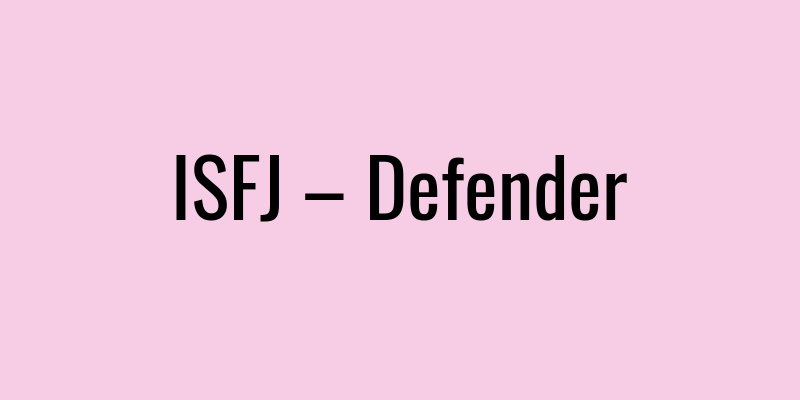The Advantages and Disadvantages of Being an INFJ (MBTI Personality Type)
Exploring the Ups and Downs of INFJ Personality
INFJ, one of the 16 personality types in the Myers-Briggs Type Indicator (MBTI), is known for its distinct characteristics such as introversion, intuition, feeling, and judging. People with the INFJ personality are often seen as insightful, empathetic, and creative. However, like any personality type, being an INFJ comes with its own set of advantages and disadvantages. In this article, we will delve into the perks and pitfalls of being an INFJ, shedding light on the unique experiences and challenges faced by individuals with this personality type.
From career choices to personal relationships, understanding the strengths and weaknesses of the INFJ personality can provide valuable insights into self-awareness and personal growth. Whether you are an INFJ yourself or interested in learning more about this personality type, this exploration of the advantages and disadvantages will offer a comprehensive understanding of what it means to be an INFJ.
Pros
Discover the unexpected perks of having an INFJ personality, and how these strengths can positively influence various aspects of life.
Deep Understanding of Others
INFJs are known for their exceptional empathy and insight into the emotions and motivations of others. This ability to understand and connect with people on a deep level can lead to meaningful and supportive relationships in both personal and professional settings. INFJs often excel in professions that involve counseling, psychology, social work, or teaching, where their empathetic nature and understanding of human emotions are highly valued.
Creative and Imaginative Thinking
The INFJ personality is marked by a vivid imagination and a strong inclination towards creativity. This imaginative mindset allows INFJs to approach problem-solving and decision-making in unique and innovative ways. Their ability to envision different possibilities and solutions can be advantageous in artistic pursuits, strategic planning, and conceptualizing new ideas.
Devotion to Personal Growth and Development
INFJs are often driven by a deep desire for self-improvement and growth. They are attentive to their own emotions and values, constantly seeking to align their actions with their inner beliefs. This commitment to personal development can lead to a strong sense of purpose and authenticity, guiding INFJs towards fulfilling and meaningful endeavors.
Empathy and Compassion
Individuals with the INFJ personality type often possess a strong sense of empathy and compassion. They have an innate ability to understand and connect with the emotions of others, which enables them to offer valuable support and guidance. This quality makes them adept at nurturing and maintaining meaningful relationships, both personally and professionally.
Visionary Leadership
INFJs are known for their visionary and strategic approach to leadership. Their ability to see the big picture, coupled with their empathetic understanding of others, allows them to inspire and motivate those around them. This often results in INFJs becoming effective and respected leaders who can bring about positive change within their communities and organizations.
Missing a pro?
Let us know which pro you are missing!
Cons
Explore the complexities and difficulties that individuals with the INFJ personality type may encounter in their daily lives and relationships.
Overwhelm from Emotional Intensity
INFJs often experience intense emotional responses to their surroundings and interactions. While this depth of emotional experience can be a strength, it can also become overwhelming, leading to emotional exhaustion and burnout. It is essential for INFJs to establish healthy boundaries and self-care practices to manage their emotional sensitivity effectively.
Idealism and Inner Conflict
The idealistic nature of INFJs can sometimes create inner conflicts and challenges in reconciling their high expectations with the realities of the world. This discrepancy between their ideal vision and real-world limitations can lead to feelings of disappointment and frustration. Learning to balance their idealism with practicality is an ongoing struggle for many INFJs.
Difficulty in Asserting Personal Boundaries
Due to their compassionate and accommodating nature, INFJs may find it challenging to assert their own boundaries and prioritize their needs over the desires of others. This tendency to prioritize harmony and avoid conflict can result in neglecting their own well-being, highlighting the importance of learning healthy assertiveness and self-advocacy.
Emotional Exhaustion
The intense emotional investment that INFJs make in their relationships and pursuits can lead to emotional exhaustion. Constantly prioritizing the needs and emotions of others without tending to their own self-care can leave INFJs feeling drained and overwhelmed. It's important for them to establish boundaries and engage in regular self-care practices to avoid burnout.
Sensitive to Criticism
Due to their deep emotional investment and idealistic nature, INFJs can be highly sensitive to criticism. Negative feedback or conflict may deeply affect them, leading to feelings of self-doubt and inner turmoil. It's crucial for INFJs to develop coping mechanisms and constructive ways to process criticism in order to maintain their emotional well-being.
Missing a con?
Let us know which con you are missing!
Conclusion
In conclusion, the INFJ personality type offers distinctive strengths such as empathy, creativity, and a commitment to personal growth, while also posing challenges related to emotional intensity, idealism, and boundary-setting. Understanding these advantages and disadvantages can empower individuals with the INFJ personality to leverage their strengths and navigate their areas of growth, fostering a balanced and fulfilling life that aligns with their unique traits.
What do you think?
Do you think the pros outweigh the cons?







